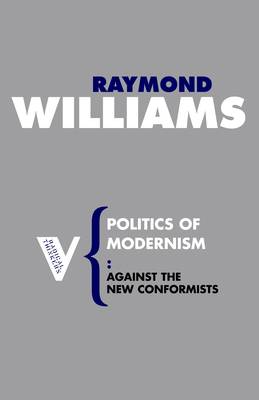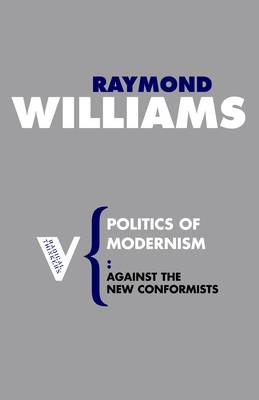
Bedankt voor het vertrouwen het afgelopen jaar! Om jou te bedanken bieden we GRATIS verzending (in België) aan op alles gedurende de hele maand januari.
- Afhalen na 1 uur in een winkel met voorraad
- In januari gratis thuislevering in België
- Ruim aanbod met 7 miljoen producten
Bedankt voor het vertrouwen het afgelopen jaar! Om jou te bedanken bieden we GRATIS verzending (in België) aan op alles gedurende de hele maand januari.
- Afhalen na 1 uur in een winkel met voorraad
- In januari gratis thuislevering in België
- Ruim aanbod met 7 miljoen producten
Zoeken
Omschrijving
Considered to be the founding father of British cultural theory, Williams was concerned throughout his life to apply a materialist and socialist analysis to all forms of culture, defined generously and inclusively as "structures of feeling." In this major work, Williams applies himself to the problem of modernism. Rejecting stereotypes and simplifications, he is especially preoccupied with the ambivalent relationship between revolutionary socialist politics and the artistic avant-garde. Judiciously assessing the strengths and weaknesses of the modernist project, Williams shifts the framework of discussion from merely formal analysis of artistic techniques to one which grounds these cultural expressions in particular social formations. Animating the whole book is the question which Williams poses and brings us significantly closer to answering: namely, what does it mean to develop a cultural analysis that goes "beyond the modern" and yet avoids the trap of postmodernism's "new conformism"?
Specificaties
Betrokkenen
- Auteur(s):
- Uitgeverij:
Inhoud
- Aantal bladzijden:
- 220
- Taal:
- Engels
- Reeks:
- Reeksnummer:
- nr. 23
Eigenschappen
- Productcode (EAN):
- 9781844675807
- Verschijningsdatum:
- 17/01/2007
- Uitvoering:
- Paperback
- Formaat:
- Trade paperback (VS)
- Afmetingen:
- 131 mm x 198 mm
- Gewicht:
- 249 g

Alleen bij Standaard Boekhandel
+ 45 punten op je klantenkaart van Standaard Boekhandel
Beoordelingen
We publiceren alleen reviews die voldoen aan de voorwaarden voor reviews. Bekijk onze voorwaarden voor reviews.









